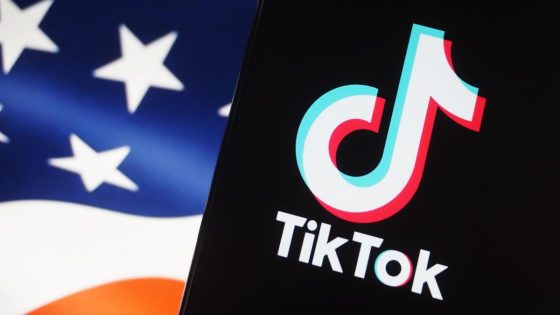Washington — A long-brewing legal standoff over the popular video-sharing app TikTok got underway on Monday, with arguments in the challenge against a possible ban kicking off.
TikTok and its parent company ByteDance have been under fire by U.S. officials for years over warnings that China’s government could gain access to users’ data and use it to manipulate or spy on Americans. But a renewed push against the app gained momentum in Congress earlier this year, as lawmakers approved a foreign aid package that included provisions requiring it to be sold or be banned from U.S. app stores. President Biden signed the legislation into law in April, teeing up a countdown for TikTok’s sale.
TikTok and ByteDance filed a lawsuit against the Justice Department in May over the law, arguing that it violates First Amendment rights of users, among other claims. With the petition, the parties asked the court to block enforcement of the legislation, which they said would force a shutdown of the app by early next year, arguing that the sale of the app is untenable before then.
Given the timeline, the U.S. Court of Appeals for the District of Columbia Circuit fast-tracked oral arguments. The parties appeared before a panel of three judges in federal court in Washington, D.C., on Monday, where TikTok sought a preliminary injunction against the law.
TikTok has argued that the potential ban would be a “radical departure” from the U.S. supporting an open internet, while setting a “dangerous precedent.” Meanwhile, U.S. lawmakers and security experts stress that the Chinese government could tap TikTok’s trove of personal data from millions of U.S. users.
In a July filing, the Justice Department outlined that the concern “is grounded in the actions ByteDance and TikTok have already taken overseas, and in the PRC’s malign activities in the United States that, while not reliant on ByteDance and TikTok to date, demonstrate its capability and intent to engage in malign foreign influence and theft of sensitive data.”
The arguments over the law that could ban TikTok
On Monday, TikTok and the Justice Department each had 25 minutes to present their case.
Representatives for TikTok presented their arguments first. Attorney Andrew Pincus asserted that for the first time in history, Congress has expressly targeted a specific U.S. speaker, banning its speech — and the speech of 170 million Americans. And he urged that it’s the government’s burden to prove the law’s constitutionality.
“No compelling reason justifies Congress acting like an enforcement agency and specifically targeting petitioners,” Pincus said.
Pincus repeatedly asserted that the Justice Department has not demonstrated evidence of China’s ability to steal data at will, while working to draw a distinction between foreign ownership and foreign control. He questioned why other foreign-based or China-based companies aren’t being targeted, and why there haven’t been less restrictive attempts to regulate TikTok outside of a possible ban or forced sale.
Asked by one of the judges about the possibility of the parent company’s divestment in the app, Pincus argued that not only is it infeasible, but it also puts a burden on TikTok even if “it would be possible.”
“So this isn’t just about divestiture. It’s really about a ban,” Pincus said.
Representing a group of prominent TikTok users who also filed a lawsuit challenging the law, attorney Jeffrey Fisher argued that in American history, the answer has never been suppression of speech, noting that the idea that a foreign adversary might spread its ideas about political and social issues “has never in our history been a basis for suppressing speech in this country.” Fischer argued that the law “directly implicates the First Amendment rights of American speakers to speak,” urging that the Justice Department’s government’s content manipulation rationale is “wholly illegitimate and invalid.”
On the other side, attorney Daniel Tenny represented the government. He argued that the bottom line is that the app’s code is written in China, outlining the sheer amount of information gathered about users and saying that the problem arises out of the data being “extremely valuable to a foreign adversary trying to compromise the security of the United States.”
Tenny drew a line between expression and protected expression, arguing that what is being targeted is not protected expression.
Source Agencies



